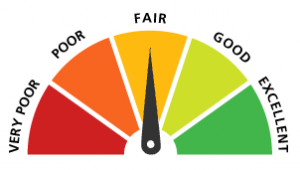Personal Finance
How Millennials Can Grow Crazy Money On A Budget
Published
7 years agoon

You know what? There is really something to this guy. Like, really truly something special about him other than being a Millennial and an absolute genius.
I mean, seriously. Who doesn’t like it when someone openly discusses the world’s deepest, darkest secrets to wealth? Like, say it with me.
Com-poun-ding interestttttt, people!
Now, you may ask, “what in the world is that and what does that have to do with growing crazy money?”
And my answer to you is, “it’s better than simple interest and has A LOT to do with growing your money and at a much faster pace”.
In technical terms, compounding interest is the ability to grow your money with interest while your interest is now growing its own interest.
Okay, maybe not the most technical definition, but you get the point. Most of us only receive simple interest which is the result of your initial investment amount growing by a certain rate of return.
In theory, here’s an example of what I mean by compounding interest by starting with a penny. Look below.
Know The Difference
I believe I’ve pretty much covered compounding interest, but let’s look at why the type of interest that you have is so important. If you take a brief look back at 1913, that’s when interest was called anatocism, thought of as “uncountable” money.

However, fast forward to now, we’re in a time where money is such a countable thing especially in hard-working, middle-class America. And compounding interest can be so freakin’ inconspicuous to newbies and virgin wealth ears.
These conversations are just not being held at the dinner table, girls night out or in man caves anywhere. “Tell me about compounding interest,” said no one ever while with friends. Mainly because the conversation was not had with our parents or elders which means they cannot pass down what they did not receive.
Bank It Or Nah
Have you ever wondered why you never receive a text about the $99 that you haven’t touched in your checking account for over a month saying “Roses are red. Violets are blue. You now have $122”? That’s because most checking and savings accounts do not give you more than 0.06% of simple interest.
It keeps you poor, honestly. You see, if you’re not beating inflation at 2%, you’re actually losing money by having it in the bank.
Even if you had six figures in that account it would take you 1200 years to see it double. And because of inflation, by the time it does, it’s worthless anyway.
Fact is, your bank is not required to give you a good interest rate, and certainly not a compounding interest rate. They’re not even required to tell you what they DO with your money once you deposit it. You just drop it off at the bank and hope for the best. And for the most part, your personal responsibility for your money stops at the drive-thru teller.

What you don’t realize is that the banks are investing your dough in the stock market so that they can grow their own pockets by leaps and bounds with the help of—you guessed it—compounding interest. The 12% compounding interest that we have wet dreams about is being realized by financial institutions on sometimes an hourly basis.
However, before you go closing checking accounts and looking for a way to rollover an old, lethargic 401k/457b/403b, here’s a perfect example of how you can at least get into the game and get into it right away.
Meet Richard
Let’s look at a guy named Richard. Let’s say Richard read this article and was inspired to schedule a private client consultation with, let’s just say, Truth Financial Group.
He’s 28 years old, in pretty good health and has a yearly income of $120k. (Don’t be shy, $120k is an arbitrary number, even if he made $30k per year he could still qualify).
He comes to me and says that he wants to get into the game and start preparing for his future.
Although he’s currently single with no kids, he wants to prepare for the life he desires but also wants to make sure he’s properly prepared for life’s surprises.
He doesn’t want to go through what he seen his parents go through, although he helps out when he can.
They outlived their retirement money and essentially became impoverished and started depending on social security and Medicare to live on. He also states that he wants to grow money securely because he has zero risk tolerance as a rookie.
I then complete a financial needs analysis (FNA) and quickly look him in the eye and say these three magical words: Indexed Universal Life (aka IUL).
“What’s that to me?!” Richard asks.
I tell Richard that he should cut out a few nights per week of dining out and golf, and opt for homemade tacos and Fortnite instead.
By cutting his miscellaneous spending by 50% per month he’ll then be able to comfortably save enough money for the plan he needs to get him into the wealth game.
By cutting a few miscellaneous costs (not all), he can still enjoy his life now by also preparing to enjoy his life later.
Once he commits to the budget and the plan, based on a mere 6.6% interest rate, I can potentially get him up to $133,218 per year. How? And why only “potentially”?
First, let me make this clear. There are over 3000 insurance companies and only a small percentage of them are considered “A” rated—meaning they’ve been vetted by the top consumer agencies in the nation.
However, most A-rated insurance companies (such as Nationwide, National Life, Voya) who offers some Indexed policies—Indexed Universal Life, specifically—usually illustrates the rate based on a 20-year history.
You will most likely end up roughly around 6.6%, although you can normally get upwards of a 12% cap.
The purpose of any interest rate in an illustration is to give you a point of reference per the historical markers. For Richard, let’s just we’re using the S&P 500 Index. Sometimes a Global Index is used as well, amongst maybe 1 or 2 other common Indices.
Point is, when it comes to any index crediting strategy or investment, no one can guarantee you will get X amount of dollars unless they can see into your future.
However, what we can do is let you know what your potential is based on the past.
Now, back to the $133,218. This newfound money—a type of pension if you will—will be tax-free, for retirement or a retirement supplement guaranteed for a lifetime.
He has the potential to see a lot more in return based on 2 key things: the performance of the stock market and if he over funds or puts additional money into the account.
But, for his consultation and for illustration purposes, if the market stays around 6.6% for 20+ years, this is roughly what his return will look like. $133,218k per year starting at 65 years old.
Here’s a nice little visual on how index crediting strategies work:
How Is It Tax- Free
There are only 2 tax-free buckets per the IRS; Life Insurance Contracts and ROTH IRA’s. Because he has the option to over fund his account in order to see more growth through compounding interest, the IRS has implemented limits. The monetary limits to over funding are always given to you in your IUL illustration and contract if working with a great agency or broker, which is necessary.
These imposed limits as to how much Richard can over fund his account without risking taxation means that he can avoid his contract from turning into a Modified Endowment Contract (MEC).
If he over funds past the MEC limits, it basically means his tax-free wealth now becomes super taxable, per federal tax laws.
Income For Life
I then say to Richard that I have built the account in a way that he actually stops all premium payments at the age of 65. The account will steadily grow and he will have a guaranteed lifetime income for retirement.
Again, roughly $133k+ per year starting at age 65 and he can receive more depending on the market and if he over funds although not necessary.
The contract will never lapse, he’d have a cash value “savings account” worth half a million by the time he’s 51 but can dip into it as soon as he sees growth.
Although making early withdrawals would be penalty free and tax-free, (remember, the IRS considers cash value in Life Insurance Contracts tax-free, my friend) it’s discouraged unless you’re using your dough to buy real estate and diversify your portfolio.
Still confused on how to grow your wealth and get a guaranteed lifetime income, tax-free for retirement?
Here’s a visual just for you:
Lastly, as an added benefit, the contract will automatically come with a $2M death benefit. He can use his benefit for just about anything.
To cover final expenses, kid’s college expenses, mortgage protection for his wife, to create a scholarship fund in his name etc. It’s your legacy at the end of the day, do what you please!
Plus, if Richards not able to work because of a major illness, injury or disability, he can accelerate up to 100% of the $2M death benefit to use as Living Benefits to help protect his wealth (whole new subject, trust me).
Finally, all of this security, multiple protections, growth potential and boss like moves will only cost him $1,103 per month or $36 per day.
On A Budget?
Now, if you cannot divvy out $36 per day, how about only $9? Let’s say you skipped the expensive cups of Joe and brought your lunch to work instead of going to lunch, you could easily toss $9 a day into a separate checking account.
Just by doing this you can still potentially get over $34k per year for over 30 years worth of retirement income with a face amount of half a million dollars for your family.

Let’s just stop and do the math, people. If you invest in yourself and put $3,240 in your IUL per year, you can potentially receive over $1M in return.
Where’s the “slap yourself silly” emoji when you need it?!
Just a personal note, when I got started, I used a portion of my tax refund every year to get into the wealth and retirement game and you can too. I’m just saying, people.
Now, back to Richard.
He, of course, loves the numbers. And without the need of a credit check, we take 10 minutes to gather his information to send to underwriting to start the approval process and boom. In seven days he’s approved and then makes the purchase and gets in the game.
With zero risks necessary because of the downside protection from the 0% “floor” (never loses money) but with upside potential that can give him up to 12% compounding interest, based on the performance of the S&P 500.
Yeah, baby. That’s one of the best ways millennials can grow crazy money.
You may like
-
The Top 10 Investment Opportunities To Capitalize On During A Recession
-
5 Tips To Pricing Your Airbnb Listing For Maximum Profits
-
Airbnb Experiences: 5 Easy Ways To Make Extra Cash Today
-
10 Tips for Making More Money with Your Airbnb Listing
-
From Pet Rocks to Potato Parcels: 5 Crazy Ideas That Made Millions Online
Personal Finance
DIY: Money Management Tips That Will Improve Your Finances
Published
4 years agoon
January 11, 2022
Even if you’re not looking for a property this exact second, you always want to be improving your position.
So, focus on the downtime to improve your finances, get your debt squared away, and put yourself in a better position when you are ready to buy!
It’s important to be sure of your financial position before you buy a property because you might find it’s harder to get that property than you would have originally thought.
Here are some personal finance tips to help you save, pay down more debt, and qualify for better loans.
Pay Attention
One of the most common reasons that people struggle financially is because they simply don’t pay attention to what is going on in their own financial life. If you are not paying attention, you can’t hope to know what is going on and therefore know how to improve matters.
Read these money management tips to start paying attention to your finances.

When I’m working on a project, I’m laser-focused on the budget, the details, the costs, etc. But, sometimes in my personal life, I let this slide.
The reality is, when we do have a budget and focus on sticking to it, our bank account balances grow so much faster than when we aren’t using one.
I love to eat out, and my wife loves to buy small things around the house. One day, we looked back over the previous year of spending and found we each averaged over $1,000 per month on our hobbies!
By pulling back a little in each area, we were able to save over $1,000 per month but still do the things we enjoyed.
So, start by having a budget!
Even if you are financially well off and can afford most of what you want, by budgeting for the items and spreading the costs out over several months, you’ll find that you buy less, spend less, and save more.

Also, if you budget to pay down certain debts faster, you’ll see those balances dramatically drop!
So, do not overlook the importance of a family budget.
Save On Other Purchases
There might be a number of other big purchases you need to make before you get hold of your next property, and it is a good idea to make sure that you are only spending as much on those as absolutely necessary.
For any big ticket items, we actually start searching for them months or even a year in advance. For example, let’s consider kitchen appliances.
As you know, a full set of appliances can easily cost $5,000-$10,000 if you are getting high-end products. It includes a fridge, double oven, gas cooktop, microwave/fan, and dishwasher.
The first thing we did was go to the store and decide on two or three brands, styles and product lines we wanted. It’s hard to compare prices unless you are looking at similar products between stores.
Then, for months we’ll watch these items and their prices. Occasionally there will be sales and by tracking the pricing all year, we know which sales are worth getting or not. When we feel we are getting the best price, we’ll buy.
And by doing that, we can easily save $500-$1,000 or even more.
We did something similar with our TV, computer monitors, etc. Basically, anything that is currently working that we want to upgrade. Over the course of a year, we are saving thousands of dollars.
You might also use a money saving app to help.
Saving money in all these places will make an enormous difference when it comes to saving for your next down-payment
Pay Down Debt
With all the money you are saving by budgeting and by planning out major purchases, you might want to use some of it to pay down debt.
You’ll have to decide if it’s better to pay down debt or have a larger down payment because both will hold you back on your next purchase.

But, generally, paying down $1/month in debt is worth about $3/month in income. At least, as far as loans are concerned.
If you do decide to work on paying down your debt, I fully detail a unique debt pay down method to get you into your next rental property faster.
Increase Your Income
Most people just focus on debt, but the reality is you can only cut your expenses so much.
Income, on the other hand, has unlimited potential. So, why not focus on growing your income?
Increasing your monthly income can be done in a number of passive and active ways, and it is worth looking into as many of these as you can to find the right one for you. I outline a number of ways to increase your income in this article on how to earn $10,000 per month.
While earning $10,000 per month in side-income might seem a long way off, it’s important to start! Even if you can earn an extra $500 month now, and grow it slowly over time, it’s worth it!.
Don’t Focus on Just One Thing
As I mentioned already, focusing on just budgeting, or debt paydown can be detrimental to your overall financial goals. It’s important to combine a number of different things into an overall strategy, which includes budgeting, debt paydown, and increasing your income.
To know more about real estate hack, money tips, and building generational wealth, subscribe to Wealthlab and learn how to bust through the barriers preventing you from becoming a millionaire.
This article originally appeared on IdealREI. Follow them on Facebook, Instagram and Twitter.
Personal Finance
VIDEO: 3 Things You MUST Know About Your Credit Score
Published
4 years agoon
October 18, 2021
We all know what a credit score is. Sort of. But what really goes into your credit score? In this video, Investopedia breaks it down. Here are the top 3 factors that affect your credit score — and what you can do about it.

If financial difficulties are keeping you awake at night, take action and tackle your problems head on otherwise they are likely to get worse. The ability to pay for rent, mortgages, bills, and food are fundamental to our quality of life.
It is important to plan for future financial hardship by making saving a goal and budgeting carefully. It’s impossible to predict what will happen in the future, so to cushion any financial hardship, it’s worth putting a little money aside each month.
Developing a savings plan now will enable you to get on with living your life stress-free! Here are the financial tips to start building your wealth.
Reduce monthly bills
List all your current outgoings and look to see if you can make any savings. Often it’s tempting to keep the same standing order from the same insurance company for year upon year. You are likely to be paying too much for your premiums and it’s worth shopping around and switching.
Look at the amount of interest you are paying on loans, mortgages and credit cards, you could be able to secure a better deal. One thing to remember is to check your credit score if it is poor lenders won’t give you the best interest rate.

It is possible to repair your credit score by using the expertise of a credit repair company.
Utility bills can be reduced by switching utility providers. Use an online comparison site to secure the best deal. Switching is easy as most of the work is completed for you by your new supplier.
Budget
To budget carefully you need to be in control of your spending and to be in control you need to be aware of your income and outgoings. List every necessary outgoing that must be met on a monthly basis and you will be left with an amount which will have been spent on miscellaneous items such as eating out.
You can then design a budget plan so that you can put a certain amount into a savings account. You will probably be surprised at how much your morning coffee costs when added up over the month.
Cut it down to once or twice a week and you will make significant savings.
Make savings work to your advantage
Savings (if you have them!) can work to your financial advantage. Ensure you choose the best financial products that give the maximum return on your savings. Financial products change rapidly to factor in a financial audit of your savings every couple of years to check savings are in the best account.
You could also consider investing your savings property or financial shares. This has the potential to be lucrative but is not without risk. Consider hiring a professional and independent financial advisor for advice.

Ideally, you should set apart some of your salaries each month in order to build up an emergency fund. Life can be unpredictable and without savings to fall back on, your car breaking down or your roof leaking could plunge you into more debt as you borrow to rectify the situation.
Savings will cushion the blow of any financial hardship.
Stop Paying Extra Bank or Late Fees
Late fees are not helping you. They add up over time – fees can even accrue fees!
If you are the kind of person who always forgets to pay their bills on time, you can get around this by automating your finances so that the money automatically goes out of your account.
You should also avoid making any extra charges on your credit card unless you are sure that you are able to pay it off in full at the end of the month.
Don’t Pay Full Price!
Paying full price is a really common financial mistake that a ton of people make.
In today’s world, you can find a sale on just about any item. If you see something you need at the store, take a few moments to shop for it online and you’ll probably be able to save 10-20%
Not only does this method stop you from overpaying, it also gives you a moment to think and decide whether or not what you were thinking of buying is actually a worthwhile investment.
Create a Financial Defense Plan
All of us need to not only earn our living and grow our finances if we’re to live a comfortable and happy life, but we must also defend them.
That means ensuring you stay rational, sensible and forward-thinking in all matters related to your financial health.
There are a few considerations you can take care of in order to make this so, and generate a cognitive and systemic financial defense to keep your money yours, and flowing in the direction you most want.
Here are the keys to defending your financial interests
Know Good Lawyers
The most important thing is to have good counsel and good advice. So, hire the best attorneys that you can afford. From real estate to contracts to brand protection, you need someone behind you making sure you aren’t making any major missteps.
The world practically runs in the courtroom now, unfortunately. So, with good attorneys on your side, it will keep you out of the courtroom and focused on running your business.
Have A Contingency Plan
It’s always best to have a fail-safe.
This might mean never tying up all your investments in one basket. It might mean diversifying your investments .
Or, it could mean allowing only one or two financial handlers to have any kind of insight into your money matters in the first place.

The key is to be able to have a solid plan but also be able to pivot to something else should the first plan fail.
With the willingness to keep a backup plan, or a mode of operation to take when something fails or doesn’t go the way you expect, you at least won’t lose anything.
Keeping a solid contingency is also reliant on keeping solid discipline with your financial means – without this none of your decisions are likely to land effectively.
Pore Over Contracts
Whenever signing a contract, or forging a new one, you need to know exactly what terms are referring to.
You also need to read between the lines, and consider what situations a certain stipulation could affect in the future. Remember, even vaguely written terms in a contract do not fall there unexpectedly.
They are either there to make or defend a certain form of income, or persuade and dissuade a certain type of behavior. Every word counts.
Remember the first recommendation? Well, here’s where they come in. But, it’s important to know how to read and interpret the contracts yourself as well.
Study contract terminology and simply dedicate the time to observe and understand.
Look For Weak Spots
What are the weak spots in your defense system?
Could it be family members having access to your accounts? Do you think it could it be emotional family members asking for financial help, when this is not genuine?
Or perhaps it could it be the services you bank with.
Don’t forget about the way you log in to your accounts and store passwords.
To prevent your finances from being breached, keep up to date on modern security measures. From there, you should be settled.
Conclusion
To reduce your financial stress, the key is to lower your costs, increase your passive income, and protect your assets.
To know more about real estate hack, money tips, and building generational wealth, subscribe to Wealthlab and learn how to bust through the barriers preventing you from becoming a millionaire.
This article originally appeared on IdealREI. Follow them on Facebook, Instagram and Twitter.
Top 5 Best Investment Strategies To Survive A Recession
The Top 10 Investment Opportunities To Capitalize On During A Recession
3 Gold Mining Stocks To Buy Today 📲
Ad 1
Trending

You’ve reached your free article limit.
Continue reading by subscribing.
Already a subsciber? Login >
Go back to Homepage >





You must be logged in to post a comment Login